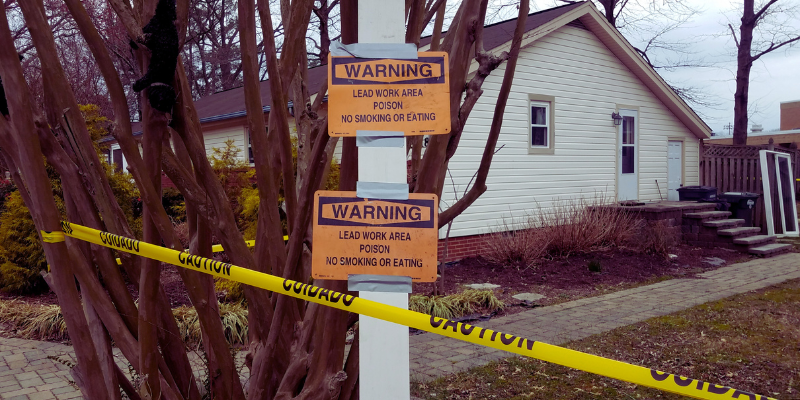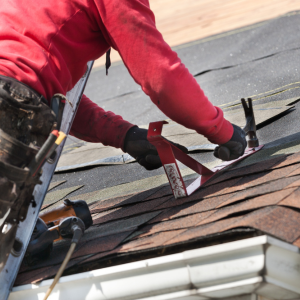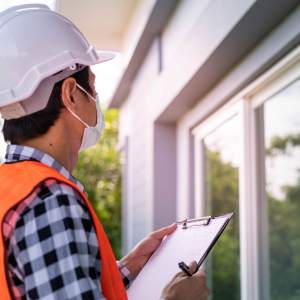
Understanding Code Violations: a Guide for Atlanta Homeowners
Understanding code violations is an important step for Atlanta homeowners preparing to sell a house that may have compliance concerns. These violations can come from many different issues, such as aging plumbing, electrical systems that no longer meet standards, structural weaknesses, or failure to follow zoning regulations.
The first step is knowing exactly which violations your property faces. A professional inspection report provides a clear overview of existing problems and helps guide next steps.
In Atlanta, city officials are in charge of enforcing building codes and can tell you how breaking certain rules could affect your home’s sale. Fixing these problems might cost a lot of money and take a long time, but it makes sure the property is up to code.
Instead, the sellers could put the house on the market “as-is,” hoping to find investors or buyers willing to do the work. People who own homes in Atlanta can better plan how to sell them if they know how violations affect worth and buyer interest.
Armed with this knowledge, sellers can move forward more confidently—whether by applying negotiation strategies or tailoring marketing to buyers who understand these types of properties. And if you’re ready for a hassle-free solution, Atlanta Home Buyers buys houses for cash in any condition—call us today.
How to Identify and Address Common Code Violations in Atlanta Homes
Identifying and correcting frequent violations in Atlanta homes is key for sellers aiming to boost appeal, especially when the property already has compliance concerns. Typical issues include outdated wiring, plumbing defects, electrical hazards, and needed structural repairs for features like decks or stairs.
To locate these problems, owners should arrange for a thorough inspection or hire a qualified home inspector with knowledge of local codes. Once identified, fixes may involve updating faulty wiring to comply with the National Electrical Code or repairing plumbing systems to match current standards.
Also, roof fixes happen a lot, especially on older homes that don’t meet today’s safety standards. Legal problems can be avoided in the future by making sure that all repairs that have already been done have the right permits.
By resolving violations in advance, sellers can boost property marketability and reduce negotiation hurdles during the sales process, making their homes more attractive to both traditional buyers and investor home buyers in Atlanta’s housing market.
Working with Local Authorities to Resolve Outstanding Housing Code Issues
In Atlanta, GA, if you want to sell a house that has code violations, you need to build a strong relationship with local leaders. Sellers can find a clearer way to comply if they work with the Atlanta Department of City Planning and other related bodies early on.
What violations affect your property should be clear, and you should be honest with officials about what you can do to fix the problem. The people who work for the city can often help you find workable answers or set deadlines that fit with your selling goals.
This cooperation may also give homeowners access to assistance programs that support bringing properties up to code standards. Hiring licensed contractors who understand Atlanta’s building regulations further speeds up the repair process.
Not only does this approach help resolve issues, but it also signals transparency and responsibility to potential buyers, creating stronger trust during negotiations.
Cost-efficient Repairs: Fixing Minor Infractions Before Selling Your Atlanta Home

For Atlanta homeowners preparing to sell, fixing minor violations through affordable repairs can go a long way in improving market value and buyer interest. Focus on cost-effective updates such as fixing leaks, replacing broken glass, or updating worn-out electrical outlets.
These small changes not only bring the property closer to compliance, but they also show potential sellers that the house has been well taken care of. Fix things that might make people not want to buy or that could cause damage to get worse if they aren’t fixed.
By making these smart changes, sellers can lessen the damage that code violations can do and make their houses stand out in Atlanta’s competitive real estate market.
Strategies for Resolving Code Violations Before Listing Your House
Correcting violations before putting your Atlanta property on the market can significantly increase buyer confidence. Begin with a detailed inspection to uncover issues such as faulty wiring, plumbing concerns, or unsafe structures.
Hiring a professional inspector gives you an accurate list of repairs that need to be done, so you can decide which ones are most important for safety. The work should then be done by licensed contractors to make sure the repairs follow Atlanta’s building rules.
Make sure all necessary permits are in order to avoid added complications later. Staying in communication with city officials during this process also helps ensure that no issues remain unresolved.
By taking care of issues right away, sellers not only make their homes more appealing, but they also set themselves up for better offers in Atlanta’s competitive housing market.
The Impact of Code Violations on Property Value in Atlanta
Unresolved code violations in Atlanta can have a big effect on the value of a home, discouraging buyers and making deals more difficult. If the home has issues like old electrical systems, broken plumbing, or structures that are falling apart, it probably doesn’t meet building rules.
When violations exist, buyers see added risks and potential expenses for repairs, which often leads to reduced offers. Lenders may also hesitate to approve mortgages on such properties, shrinking the buyer pool.
For this reason, sellers need smart pricing strategies and practical solutions before listing. A clear understanding of how violations impact appraisals helps Atlanta homeowners protect their financial return.
Legal Implications of Selling a House with Code Violations in Georgia
If you want to sell a house in Atlanta that has code violations, you need to pay close attention to your legal obligations. Georgia law says that sellers must tell buyers about any known violations. If they don’t, it can lead to a dispute or even the end of the deal.
Sellers must also be aware of local regulations in Atlanta, which sometimes require specific steps before a property can be marketed.
It’s always best to consult an experienced real estate lawyer since they understand Georgia’s housing laws and Atlanta’s specific regulations. Their guidance helps sellers avoid legal issues, stay compliant, and maintain transparency with buyers. This makes the selling process smoother, more reliable, and stress-free. And if you’re looking for a faster option, we buy houses in Georgia and can help make the process even easier.
Preparing Your Atlanta Property for Sale Despite Code Violations

It takes careful planning to get your Atlanta home ready to sell, even if there are code problems. First, make a list of all the violations and look at how they affect worth. To get a full picture, you might want to hire an inspector or worker who knows the rules in your area.
From there, focus on smaller repairs and simple improvements, like deep cleaning or decluttering, which boost visual appeal at low cost. Sellers can also gather repair estimates to share with buyers, demonstrating transparency while allowing negotiations around repair costs.
To make up for worries about violations, talk about the home’s good points, like its location or style. Working with an experienced real estate agent will help you set the right price and sell your home in a way that appeals to buyers who are willing to put some work into it.
Marketing a House with Code Violations: Tips for Attracting Buyers in Georgia
Marketing a property with violations in Atlanta calls for a clear and honest strategy. First, spotlight unique features such as strong investment potential or desirable location, which can help outweigh compliance concerns.
Buyers will trust you more if you are honest about the nature of violations. Comparing the listing to other homes of the same type and price it competitively to reflect the repairs that need to be done makes it appealing.
Working with skilled agents who have experience selling homes with challenges ensures smoother negotiations and effective presentation.
Also, focusing on investors or buyers who want to make improvements often brings in more interest, since these groups are actively looking for homes where improvements can increase their worth. In Atlanta’s fast-moving housing market, using online platforms and real estate networks can help you get more publicity.
How to Disclose Code Violations to Potential Buyers Legally and Effectively
When selling in Atlanta, GA, properly disclosing code issues is essential. Begin by arranging a professional inspection and obtaining a detailed report that identifies all violations.
Sellers should present this information clearly, often through a property condition disclosure statement—a standard practice in Georgia real estate. Outlining both problems and any completed repairs reassures buyers.
Working with an experienced real estate professional can help ensure the documents meet local requirements. Full transparency builds buyer trust and reduces the chance of disputes later.
To encourage interest, consider offering repair credits or adjusting the sale price to reflect necessary updates. This approach keeps negotiations open while presenting the property fairly.
Negotiating Price Adjustments for Properties with Code Violations in Atlanta
When selling a house in Atlanta that has code problems, the price often needs to be negotiated. Buyers have to pay more when rules are broken, so sellers need to be ready to talk about price cuts or compromises.
By telling buyers about all violations up front, sellers can figure out how much it will cost to fix and make more informed offers. Working with a real estate agent who knows the Atlanta market well can help buyers set prices that are competitive while still protecting the property’s value.
Buyers can also ask for credits at closing to cover the costs of repairs. Even when there are problems with the code, sellers can close deals more easily if they are open and show what the home could be after the repairs.
The Role of Home Inspections When Selling a Non-compliant Property in Georgia

Home inspections are vital when selling a house with violations in Atlanta. These evaluations highlight where a property falls short of local building codes and provide clarity for both seller and buyer.
A thorough inspection uncovers hidden problems and allows sellers to address them in advance. For buyers, inspection reports serve as a negotiation tool, offering insight into risks and repair costs.
Hiring inspectors who understand Georgia’s housing codes ensures reliable results. With this knowledge, sellers can prioritize repairs, reduce legal risks, and maintain transparency throughout the sales process.
Financing Options for Buyers Interested in Homes with Code Issues in Atlanta
When considering homes with violations in Atlanta, presenting flexible financing solutions can help sellers attract more buyers. Because these properties bring unique challenges, it’s important to emphasize options that support both purchase and repair costs.
Many buyers turn to renovation loans such as the FHA 203(k) loan or Fannie Mae’s HomeStyle Renovation mortgage, both of which fund not only the purchase but also the necessary improvements. These loans allow buyers to bring the property into compliance while upgrading its condition.
Another possibility is seller financing, which can benefit buyers unable to qualify for traditional loans due to the home’s current state. By offering such alternatives, sellers widen the buyer pool and move toward a quicker sale, even when significant repairs are involved.
Understanding Buyer Concerns and Overcoming Objections About Code Violations
For homeowners in Atlanta, recognizing buyer concerns is critical to easing objections and securing a deal. Many buyers hesitate when a property carries code issues, worrying about repair costs or potential legal problems.
The best way to address this is through full transparency, providing a detailed list of violations and explaining their implications. Supplying written repair estimates helps buyers measure the financial impact and make confident choices.
At the same time, sellers can highlight strengths such as a desirable location or unique design features, which may balance out concerns. Offering closing credits or price reductions can further reduce hesitation.
Working with experienced real estate agents who understand properties with violations reassures buyers that practical solutions exist, transforming initial objections into negotiable points.
Exploring Alternative Sales Methods for Houses with Major Compliance Problems
When an Atlanta home carries significant violations, alternative selling strategies can ensure a smoother transaction. A common approach is targeting real estate investors who specialize in distressed properties and are prepared to renovate for profit.
Another route is selling directly to cash buyers, who are less dependent on loan approvals and often accept homes “as-is.” Sellers can also use online platforms geared toward investment properties, connecting with buyers who expect compliance challenges.
In every case, being upfront about violations is essential so buyers can properly assess costs and timelines. Partnering with agents familiar with Atlanta’s regulatory environment helps refine pricing and connect with motivated buyers ready to take on non-compliant homes.
Can You Sell a House That Doesn’t Meet Code?
Yes, selling a home that doesn’t meet code in Atlanta is possible, provided sellers use the right strategies. The first step is identifying specific violations through an inspection so they can be disclosed early in the process.
Transparency reassures buyers and keeps negotiations straightforward. Investors and cash buyers, in particular, are often drawn to properties with renovation potential and are less concerned about compliance at purchase.
Competitive pricing is also key, with sellers adjusting the list price to reflect necessary work. Offering repair credits can further motivate buyers. With these tactics, homeowners can successfully market and sell their non-compliant properties.
What If You Buy a House That Is Not Up to Code?
Buying a house in Atlanta that isn’t up to code requires careful planning. Issues may range from cosmetic problems to major structural concerns, so the first step is commissioning a full inspection. This report clarifies the extent of violations and helps shape a response.
Some buyers may decide to handle repairs directly, while others opt to resell the home “as-is” to an investor. Transparency with buyers and pricing adjustments based on repair needs are crucial to making such transactions work.
Working alongside agents who regularly deal with non-compliant homes can provide essential guidance. With professional support and an informed strategy, buyers can turn these challenging properties into valuable investments.
Can You Sell a House That Fails Inspection?
Selling a home in Atlanta that fails inspection can feel daunting, but it remains a legal and achievable process. The key is honest disclosure of all known problems so buyers enter the deal fully informed.
Many sellers find success working with as-is buyers—such as investors—who are familiar with homes requiring major updates. Pricing the home competitively makes it more attractive, while offering repair credits can draw traditional buyers as well.
By partnering with an experienced real estate agent, sellers gain insight into negotiation strategies and local market conditions, which ultimately helps them move the property even after a failed inspection.
Can Code Enforcement Go on My Property in Georgia?
In Georgia, particularly in Atlanta, code enforcement officers play a central role in maintaining safety standards. These officials are legally permitted to inspect properties when violations are suspected, often after notice has been given or complaints have been filed.
Their inspections ensure compliance with building codes and community safety. For sellers, this means unresolved violations can surface before or during a transaction, directly affecting the sale process.
Addressing issues before listing demonstrates responsibility and helps build trust with buyers. Taking proactive steps with city officials to resolve violations not only eases the sales process but also strengthens your negotiating position.
Helpful Atlanta Blog Articles
- Asbestos Removal Solutions For Homes In Atlanta, Georgia
- Essential Paperwork For Selling Your Atlanta Home By Owner
- How To Sell A Repair-Needed Home In Atlanta, GA
- Sell A House With Foundation Issues In Atlanta, GA
- Selling A House With Code Violations In Atlanta, GA
- Agent Fee for Selling House in Atlanta, GA
- Capital Gains Tax After Selling a House in Atlanta, GA
- Guide to Inherited House with Sibling in Atlanta, GA
- Fun Facts About Atlanta, GA
- Atlanta, GA Neighborhood Map
- Cost of Living in Atlanta, GA
- Atlanta, GA Property Tax Rate
- Complete Guide to Property Management in Atlanta,GA

| REGULATORY COMPLIANCE | MARKET PRICE | ENVIRONMENTAL RISKS | INSURANCE | PREMIUMS | INSURANCE PREMIUMS |
| LAWYER | HOMEOWNER INSURANCE | THE UNITED STATES | LIENS | LIABILITY | |
| MORTGAGE LENDERS | HEALTH | HAZARDS | HEALTH HAZARDS | SAFETY HAZARDS | CONSTRUCTION |
| WOOD | WATER DAMAGE | TAX | MOLD | LENDING | FORECLOSURE |
| BATHROOMS | WATER HEATER | HOT WATER | SMOKE ALARMS | SMOKE | PIPING |
| MESSAGE | LAWSUITS | INTERNATIONAL BUILDING CODE | INTERNATIONAL RESIDENTIAL CODE | INTERNATIONAL BUILDING CODE (IBC) | HOMEOWNERS ASSOCIATIONS |
| HOA | HOMEOWNERS ASSOCIATIONS (HOAS) | CONTRACTS | VENTILATION | RESEARCH | REAL ESTATE INVESTMENT |
| THE NATIONAL ASSOCIATION OF REALTORS | LEAKS | LEAD PAINT | LEAD-BASED PAINT | IBUYER | HEATER |
| HANDRAILS | FLORIDA | FLIPPERS | HOUSE FLIPPERS | EVALUATION | DIY |
| DO-IT-YOURSELF (DIY) | DATA | COMPANY | ASBESTOS | SELL YOUR HOUSE |
